The Best of Mobile Geo-Targeting in Marketing
The location tracking is an important tool in current mobile application technologies that lets you choose your target locations to reach out to your customers. To implement location targeting through mobile marketing is even more beneficial. In the current digital marketing competition, mobile marketing is an essential aspect of an effective marketing plan to focus on. Mobile geo-targeting (mobile location targeting) is a great tool for a mobile marketing strategy that has the potential to prompt your business forward.
Mobile Geo-Targeting: What makes It Unique?
According to the statistics of Tech Jury related to smartphone usage, there are 2.7 billion smartphone users all over in the world. More than half of smartphone users (about 57%) feel comfortable with apps that track their location. The active geolocation gives marketers an opportunity to implement mobile geo-tracking and reach their potential customers through mobile apps. But how do they do it? Generally, there are 3 location identifiers for mobile apps:
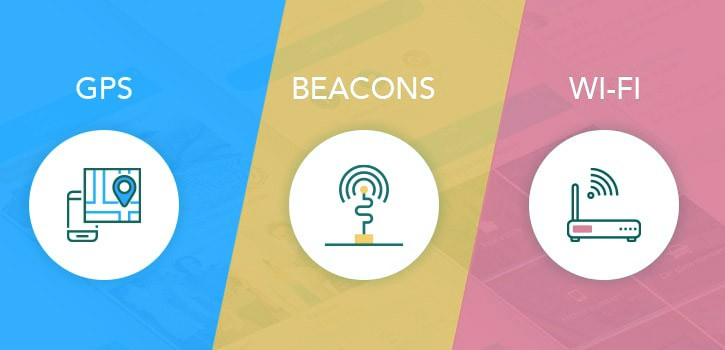
-
GPS
The GPS service requires a continual link to at least one satellite. This device is preferable as an outdoor location detection system. It powers a wide range of outdoor spheres - from the bus navigation system to the local search results. However, in the case of indoor conditions, it functionally suffers because GPS tracking mobile apps lack accuracy as they are responsive to any kind of obstacle.
-
WiFi
Currently, creating an app, developers integrate WiFi in it. The purpose is obvious: there are WiFi hotspots almost everywhere so that people are always connected. As a result, businesses may target the users’ location and send notifications according to their geographical position.
-
Beacons
Beacon technology is enabled by Bluetooth Low Energy (BLE) and offers two basic profiles: Google Eddystone and Apple’s iBeacon. Beacon is added to an Android or iOS app through the Beacon profile. Mobile apps, covering either of these elements, connect the users’ devices to BLE devices that are located for example in stores, offices, and similar business centers.
This kind of location data is accessed through mobile apps that users activate and grant permission. Mobile app developers integrate special location SDKs (Software development kits) that provide sophisticated location intelligence to the brands. As a result, verified location signals are mapped to real-world places, and the apps are notified whenever the users are in the territory.
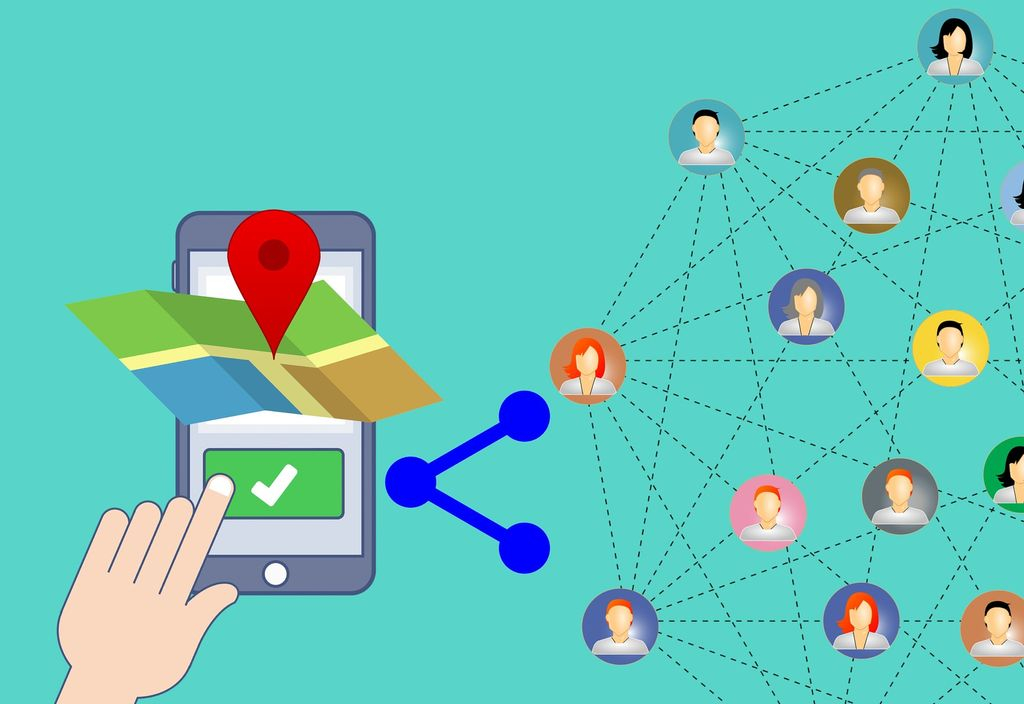
A carefully created location SDK may become a B2B tool. Mobile developers who have coded one may sell the kit to other businesses. Therefore, both companies will benefit: one will earn some revenue by selling a kit, the other will save time and energy buying the kit instead of developing one.
A bright example of a successful location SDK is built by our creative developers for Bubbl tech. Bubbl is an iOS and Android app plug-in and SDK with a sophisticated and highly accurate geofence activation, cloud-based campaign and analytics platform. It’s an innovative “drop-in” solution for mobile proximity marketing. Due to this location-based mobile marketing technology Bubbl team increases customer engagement. As a result, this agency built an authentic relationship between brands and consumers which, in its turn, moves the company forward.
Location tracking is the most effective tool to use in mobile app marketing strategy to access the users’ locations and get unique information on each customer. In this regard, the mobile application development agencies can be helpful to various businesses. How can brands practice a targeted advertising experience if not with the help of an accurately developed application? So how does it work for you?
Mobile apps are designed to provide personalized services based on the current locations of the users. These location-tracking apps create an even more customized experience for potential clients, based on their needs and physical location to various stores, companies, businesses, etc. Below you’ll find the top 4 benefits of the location targeting that will help you achieve your business goals.
1. Identify your buyer persona
Apps that track locations, help you choose your buyer persona. The buyer persona is a collective image of all your customers. Based on their location, the places they visit, you form this fictional character and gain insight about it. You may think there is nothing important in understanding your buyer persona, yet, you cannot provide an appropriate service or product if you don’t know who it is for.
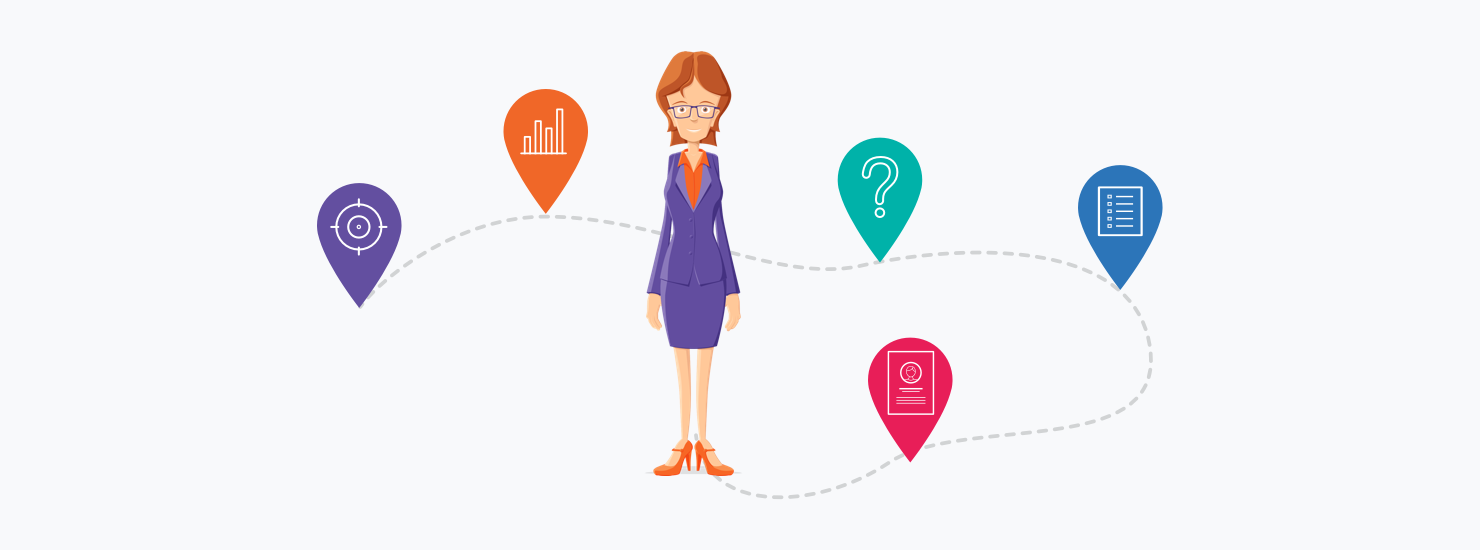
On the other hand, with the help of location targeting data, companies may better understand the audience. As a result, they may customize their services or products to the interests and the requirements of that specific group of their targeting audience. The buyer persona includes as much information about the audience as possible. The location targeting is just a part of it, yet an essential part. As a brand, we may collect information about where that specific group lives, what kind of places they visit on a daily basis. As a result, we may guess their social position, status, preferences, and similar data that may help us offer their required services.
2. Target potential customers nearby
It’s great if your business is shown up in the search results for a certain service or product because it is nearby. It will help you to stand up in the competition.
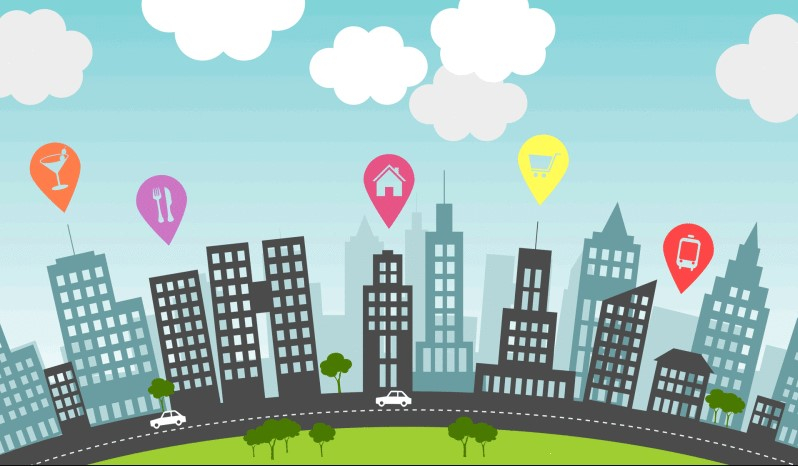
In the current technological era, mobile devices are tools for availability and convenience. The targeted mobile marketing based on geographical location helps to meet your users’ needs for convenience. Showing a potential customer that what they require is close by, gets them closer to achieving their goal without any trouble. A similar technique may also work well when sent special deals or promotions (such as coupons or sale offers) are sent to mobile users based on location.
3. Location-based push notifications
Push notifications are messages that pop up on mobile devices, engage nearby people and prompt them on making an action. This is very often used in mobile app marketing. App publishers send them to the users and there is no need to be in the app or using the mobile device to receive them. For example, whenever potential customers walk nearby the storefront, they get location-based push notifications offering a sale or any kind of promotion not far from their current location.
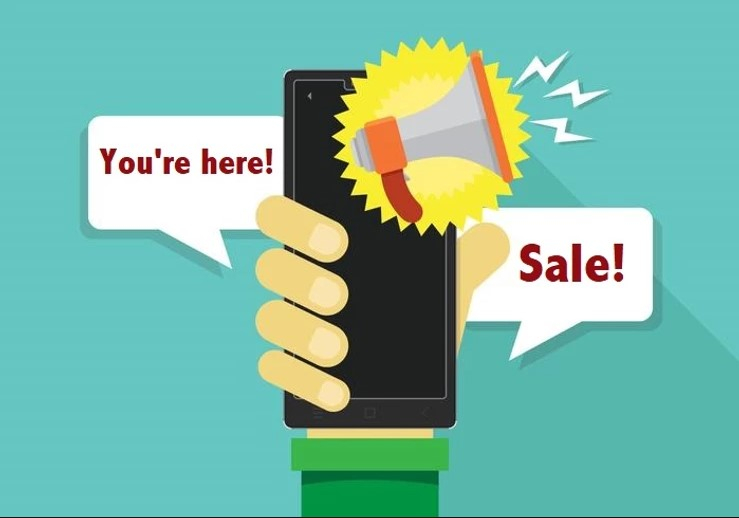
Location-based push notifications are similar to CTA (Call To Action) buttons. They make you feel you are very close to whatever you like. As a result, you are very likely to take that action. Push-notifications are convenient cause they appear on the screen without any effort of the user, and they immediately attract the user’s attention.
4. Location-based mobile ads
Location tracking can increase sales and engagement for businesses by reminding the customers whenever they are near your office, store, hotel, etc. Apps that track locations, can also target advertisements to the right audience. These are known as geo-targeted mobile ads. It’s an essential part of a wisely organized mobile campaign.
More often, the term “radius targeting” is used in such cases. This is an advertising technique to target consumers when they are near a predefined location. It is also known as “proximity targeting” and allows the businesses to show ads to potential clients within a specific geographic radius around a brand.
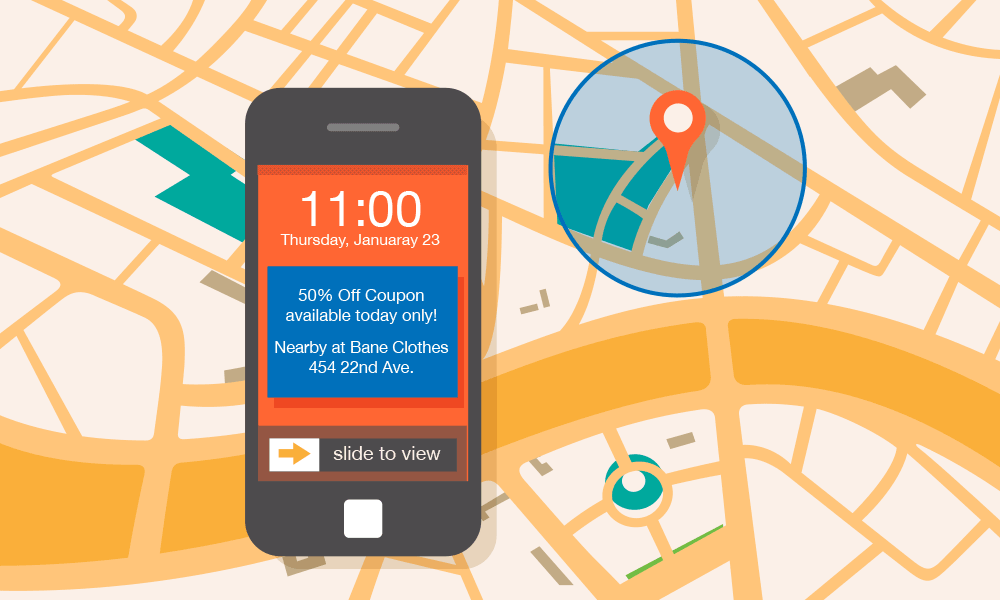
Imagine that the people who walk in a nearby area (you choose the length), get ads about a sale in their favorite brand store 200 meters away. There is a great chance that the majority of those people will enter the shop. As a result, the business will benefit from an accurate geo-targeted mobile marketing plan.
To Sum Up
The best thing about using geolocation data for mobile marketing is that it helps us create a more personalized and relevant marketing campaign that will be targeted to potential customers. Neither the campaign nor the audience is chosen by chance. Both are strategically planned that guarantees a higher level of awareness, sales, and business growth.

